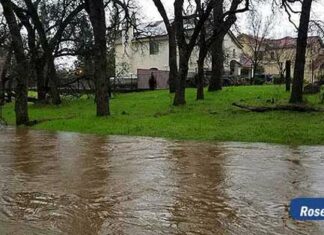Lincoln, Calif. – Students from Lincoln High School are helping to study and protect the Auburn Ravine in a program that combines science with environmental stewardship.
For 12 weeks, students have been learning how to monitor the creek in Auburn Ravine and how it can be restored to its natural state. The monitoring process is called SWAMP (Surface Water Ambient Monitoring Program) and it is a method to evaluate the health of a stream and its surrounding environment. The students’ work is part of a statewide effort to monitor California waterways.
‘A creek system embodies such complex ecology that breaking it into pieces for study gives students a valuable window into the environment,’ says Bernadette Bezy, an aquatic biologist for ECO:LOGIC Engineering. ‘These students are learning real-world skills in biology, geology and ecology that can be applied to their immediate environment. I hope many of them find this work so interesting, they might consider it as a career.’
The program including equipment, training and coordination is a model of cooperative effort between ECO:LOGIC Engineering, which manages the program and trains the students; Lincoln High School; the City of Lincoln; the Regional Water Quality Control Board; California Department of Fish and Game; Save Auburn Ravine Salmon and Steelhead; and Friends of Deer Creek.
‘This class offers students a unique opportunity to learn real science’ outside the classroom alongside professionals,’ said Chant Leavell, science teacher from Lincoln High School. ‘The kids get to apply what they have learned in the classroom. They also see that doing research or collecting information in the field requires years of education and preparation. The students come away from this class with a greater knowledge of how their actions can improve or destroy one of the World’s most precious resources, water.’
Each week, students learn about a specific aspect of stream ecology like the importance of stream insects. They then put that information to work in the field where they use their new stream understanding and monitoring skills. In the end, they will have a firm grasp of general stream ecology and more specifically, Auburn Ravine ecology. They will also know how to complete the entire SWAMP process.
Students will receive three units of college credit for being concurrently enrolled in the course and another half unit for taking the accompanying GPS course. Some students will go on to pursue a certificate in Watershed Management which is available through a partnership between Lincoln High School and Merritt College in Oakland.
In the final class on November 2, students put the entire 12-week course together and took a field test. The data they collect will be provided to the California Department of Fish and Game as part of a statewide SWAMP database, to SARSAS (Save Auburn Ravine Salmon and Steelhead) and to the City of Lincoln so that they can monitor the health of the creek for generations to come.
(21+ years strong)
Welcome to the brighter side!
Get in front of local customers! 24/7 (365)























